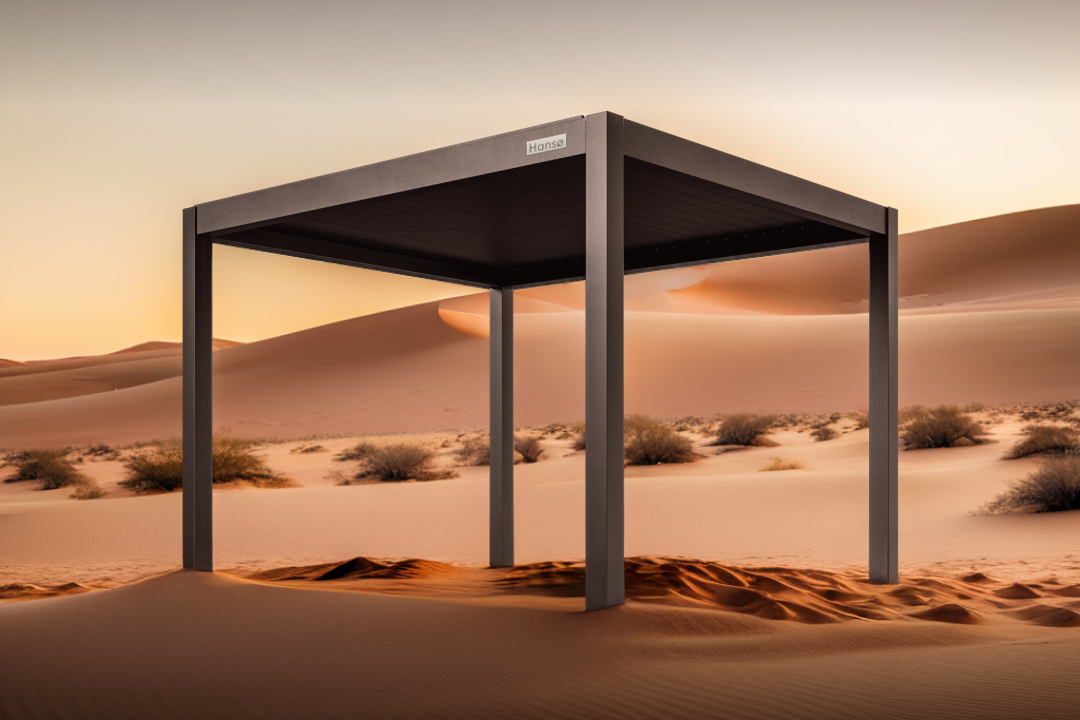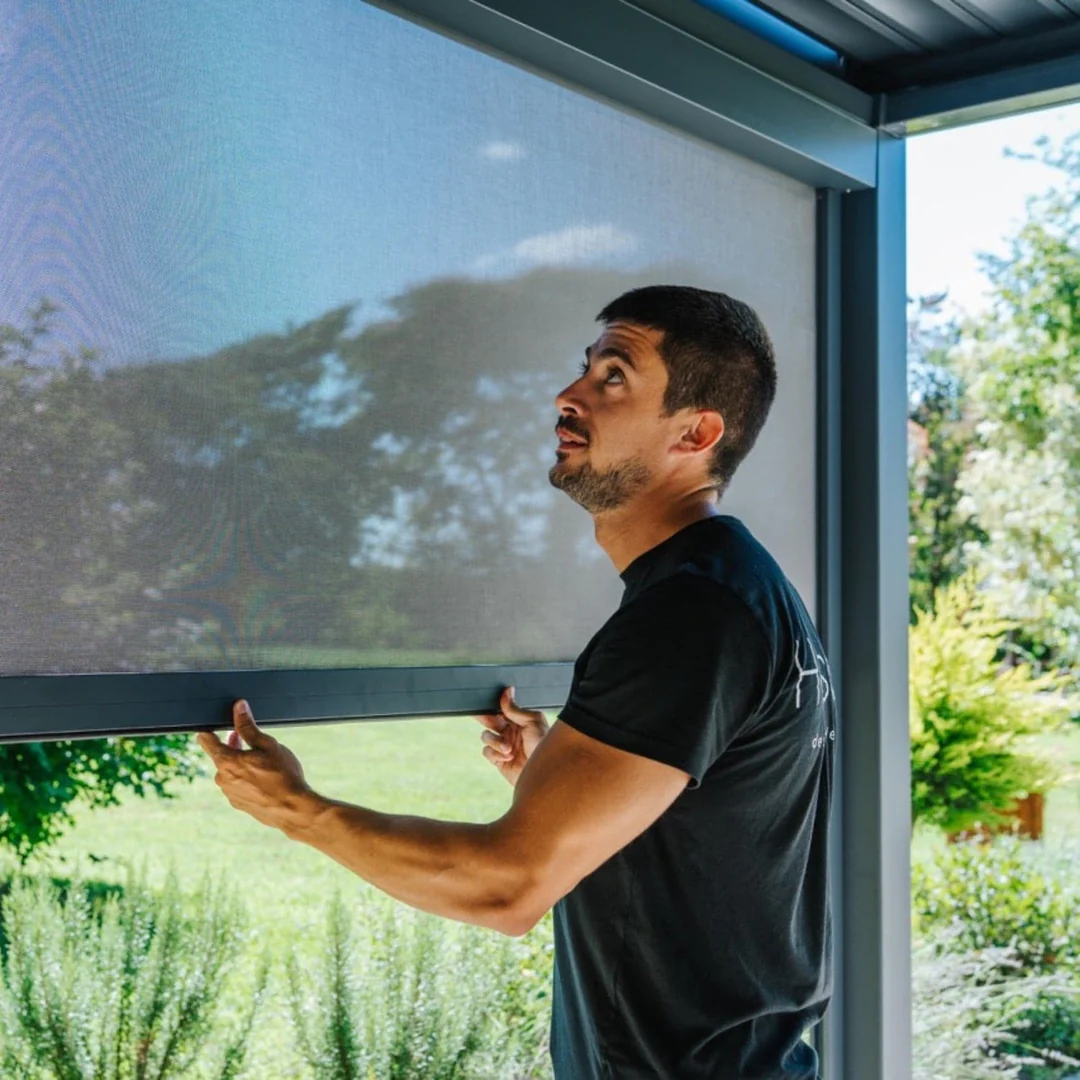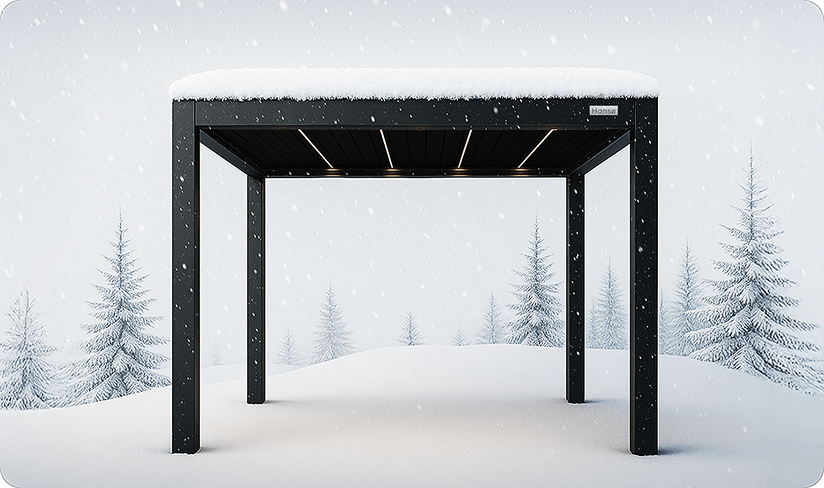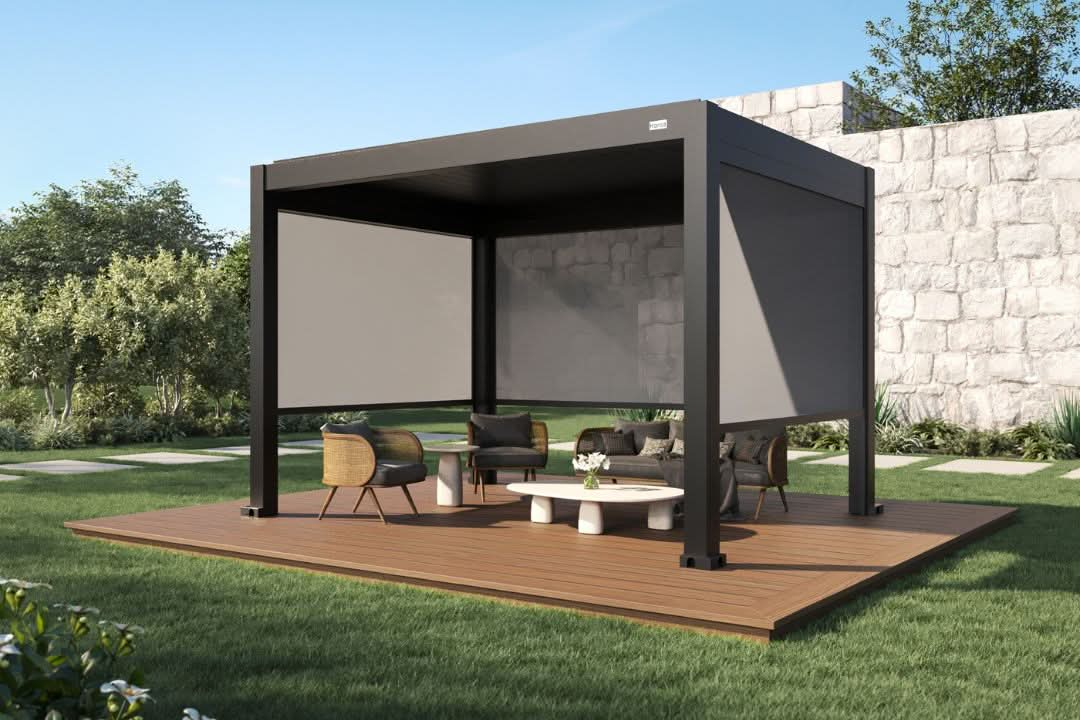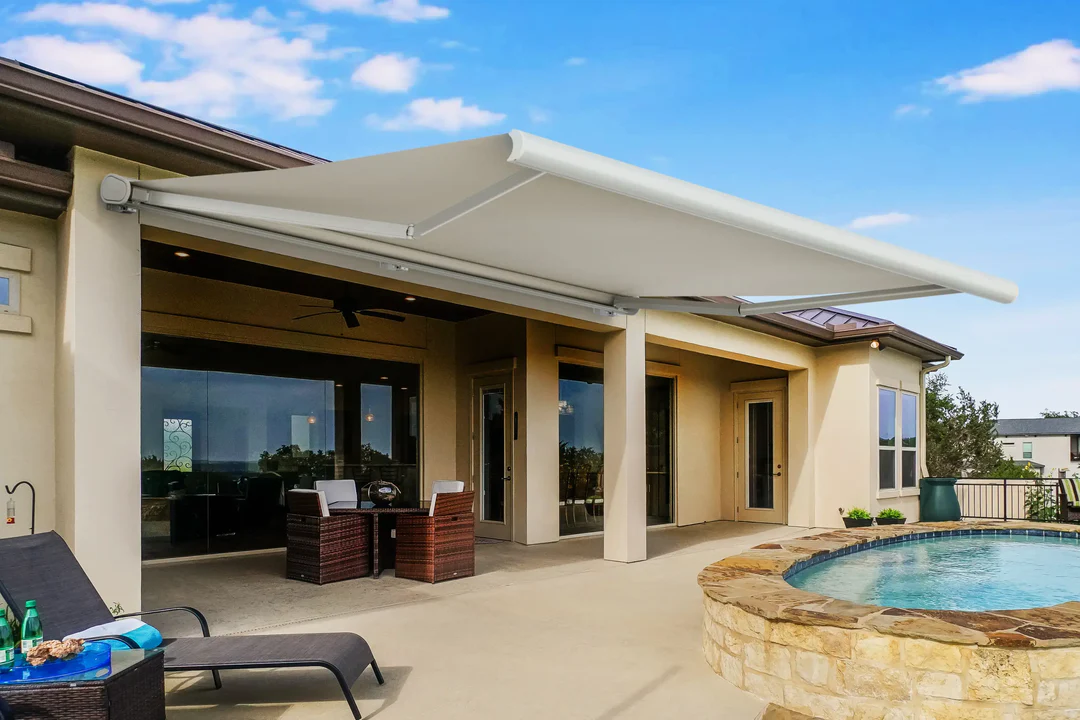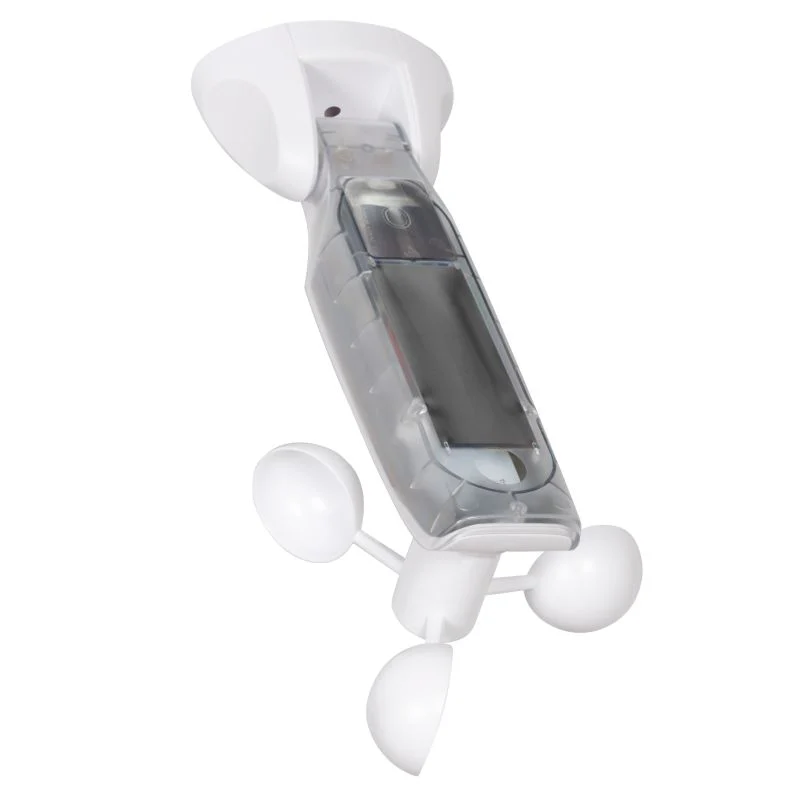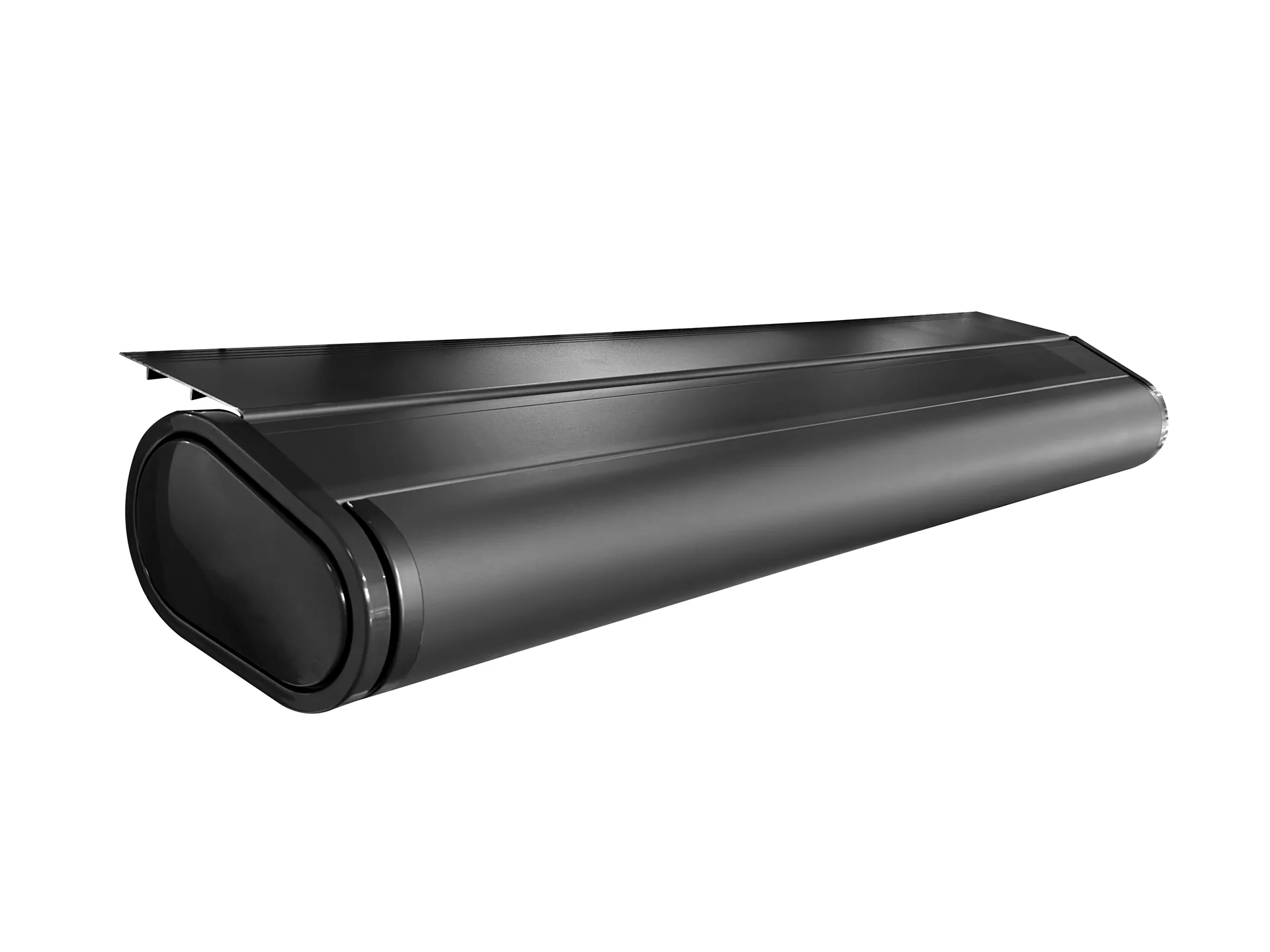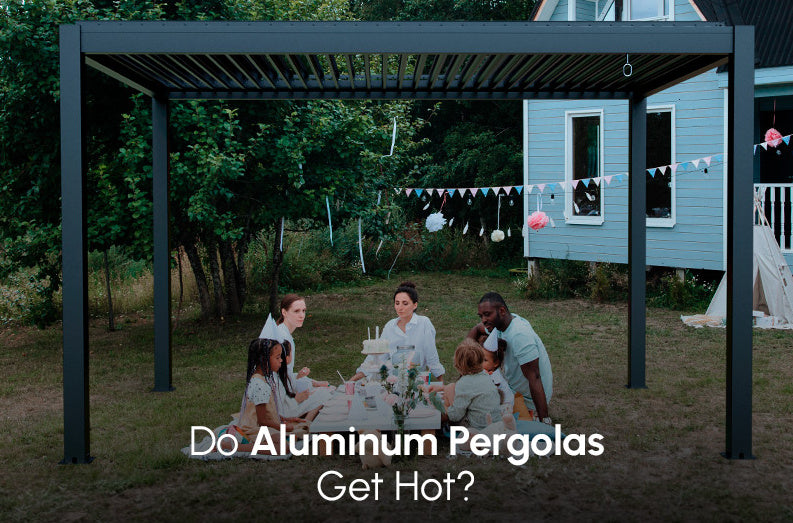Aluminum Vs Wood Pergolas: Which One Is Better?
 When it comes to choosing the right pergola materials for your outdoors, the battle between the most popular pergola material comes to the fore.
When it comes to choosing the right pergola materials for your outdoors, the battle between the most popular pergola material comes to the fore.
Aluminum vs wood pergolas, which one holds the key to perfection?
We understand the importance of making a quality decision, and that's why we've compiled a series of thought-provoking questions and features for your consideration.
By examining these features and more, we aim to provide you with the necessary insights to determine which material reigns supreme for your outdoors.
Aluminum vs Wooden Pergolas: Which Material Offers Long-Lasting Performance?
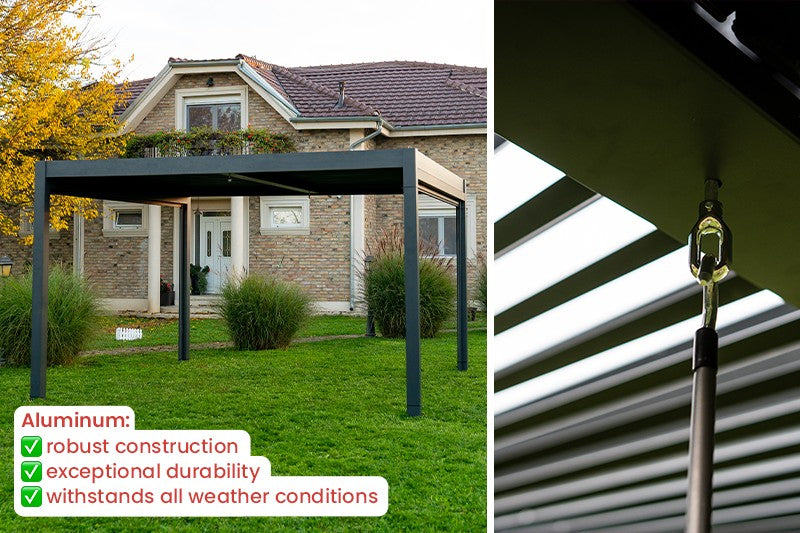
When it comes to ensuring the durability and longevity of your pergola material, aluminum pergolas emerge as the clear frontrunner.
With their exceptional durability and robust construction, aluminum pergolas stand the test of time, outshining their wooden counterparts.
Picture a pergola that resists warping, cracking, and rotting, maintaining its pristine condition year after year.
Unlike wood pergola, if left untreated, which is susceptible to moisture damage and insect infestations, aluminum pergolas offer unparalleled resistance to these common issues.
Their sturdy aluminum framework withstands the harshest weather conditions, from scorching sun to heavy rain, without fading or deteriorating.
Aluminum or Wood: Which Pergola Requires Less Maintenance?

For a hassle-free outdoor experience, aluminum pergolas are the top choice.
With the benefits of their maintenance-free nature, these pergolas offer you the luxury of enjoying your outdoor space without the constant need for upkeep.
On the other hand, wooden pergolas require regular staining, sealing, and repainting to preserve their appearance, aluminum pergolas boast a low-maintenance advantage.
With their durable powder-coated finish, they resist fading, chipping, and peeling, eliminating the need for frequent touch-ups.
Aluminum pergolas also won't decay, distort, or attract pests because they can't be damaged by moisture.
Which Material Creates a More Striking Visual Impact: Wood or Aluminum Pergola?

Here's the deal:
The answer totally depends on your design preferences, do you like classical and traditional or modern pergola style?
First of all, wooden pergolas certainly possess a charm that captivates the eye.
The natural beauty and warm texture of wood create a visually stunning focal point, adding a touch of rustic elegance to your outdoor space. The intricate wood grain patterns and the tactile sensation of running your fingers across the surface evoke an authentic experience.
While wood is renowned for its aesthetic appeal, aluminum pergolas reflect perfectly and are suitable for fans of modern design. In addition, they can also be customized to emulate the texture of wood grain through powder coating techniques, providing the best of both worlds - the captivating appearance of wood and the longevity of aluminum.
The wood texture of aluminum pergolas, achieved through advanced powder coating, creates a natural aesthetic allure as well. You can enjoy the stunning visual impact of wood without worrying about the challenges of regular maintenance, such as staining, sealing, or rotting.
Now:
Who is the winner here totally depends on your current backyard and house design. The pergola should not stand out from the overall design context.
Aluminum or Wood: Which Pergola Material Offers Easier Installation?

One of the crucial factors to consider when selecting a pergola material is the ease of installation.
Understanding the installation processes for aluminum and wooden pergolas can help you make an informed decision that suits your preferences and requirements.
The installation of aluminum pergolas is often praised for its straightforward and user-friendly nature and is often made easier with pergola kits. You could install an aluminum pergola kit within 4 hours (installation instructions).
Aluminum, being a lightweight material, allows for easier handling and maneuverability during the installation process.
Many aluminum pergolas are designed with pre-cut and pre-drilled components, simplifying the assembly and reducing the need for specialized tools or skills.
With clear instructions and a few basic tools, homeowners can often complete the installation of a pergola in a relatively short time frame without drilling it.
On the other hand, wooden pergolas may require a bit more time and effort during the installation process.
Wood is a denser and heavier material compared to aluminum, which can make handling and positioning the components slightly more challenging.
Additionally, wooden pergolas often require more intricate joinery and may involve more steps, such as cutting and sanding, to achieve the desired fit and finish.
Ultimately, when it comes to the installation of a pergola, it's advisable to carefully assess your skill level, available time, and resources.
If you are seeking a hassle-free and straightforward installation process, an aluminum pergola may be the ideal choice.
Aluminum or Wood: Which Pergola Material Holds Up Better Against the Elements?

When it comes to choosing a pergola material, the complexity lies in weighing its resilience against the elements and its ability to uphold structural integrity over time. It's a perplexing decision, no doubt.
Both aluminum and wood possess distinct attributes that contribute to their performance in outdoor settings. It's a burst of choices, each with its own burst of potential.
Aluminum, celebrated for its unyielding might and durability, effortlessly thrives in outdoor environments. Its resistance to rust, corrosion, and rot creates a shield against the elements, leaving it standing strong.
Designed to withstand even the harshest of weather conditions, aluminum pergolas are engineering marvels. Torrential rain, scorching sun, relentless winds - they're all mere playthings to aluminum's indomitable substance.
As if that weren't enough, aluminum pergolas often sport protective coatings that amplify their longevity. They bravely face the challenges of fading, chipping, and peeling, emerging unscathed. A testament to their low-maintenance nature and unwavering endurance.
On the other hand, wood offers a timeless and organic allure that captures the hearts of many homeowners. Yet, it demands meticulous care to ensure its longevity.
Beware, for in the face of continuous moisture or drastic climate changes, warping, splitting, and rotting lurk in the shadows, threatening the core of the structure.
When it comes to durability, wooden pergolas can withstand strong wind, sunlight or even storms, but in general, it will require more maintenance.
Wood or Aluminum Pergola: Which Provides Better Value for Your Investment?

When buying a pergola, it's crucial to take your return on investment into account.
Both aluminum and wood are excellent choices, but it's crucial to consider costs, variables that affect price, and overall value.
A pergola kit made of aluminum typically costs very similar to one made of wood.
Without a doubt, it all depends on which supplier you choose and which materials will be used. It is also important to pay attention to the fact that a pergola kit usually does not require additional funds and time for assembly, while if you buy wood to build a pergola, the materials for its assembly may also cost you extra.
However, it's important to look beyond the initial cost and consider the long-term value.
Aluminum pergolas offer exceptional durability and require minimal maintenance, translating into cost savings over time.
Talking about wooden pergolas, they require regular inspections, cleaning, resealing, and potential wood treatments may be necessary to preserve the appearance and structural integrity of any wooden pergola.
Factors such as weather exposure, climate conditions, and the type of wood used can influence maintenance needs and costs.
Which Pergola is Safer: Wooden or Aluminum?
When examining the safety quotient between aluminum and wood pergolas, the distinct characteristics of both materials come into play.
Aluminum, an alloy with a significant strength-to-weight ratio, bestows pergolas with commendable resilience and stability against adverse weather, reducing the risk of structural failure.
In contrast, wooden pergolas, although exuding rustic charm, may present safety hazards over time. Termites, rot, and weathering can compromise wood's integrity, potentially leading to structural instability.
Furthermore, wood's combustibility poses a fire risk, especially in regions prone to wildfires.
Moreover, If you do not take care of a wooden pergola, you can quickly get a splinter from it.
Therefore, in a safety-centric comparison, aluminum pergolas hold a distinct advantage over their wooden counterparts.
Final Thoughts
We hope that this exploration of aluminum and wood pergolas has provided you with valuable insights to make an informed decision.
By weighing the advantages and considerations of each material, you can choose the perfect pergola that aligns with your preferences, budget, and long-term goals.
We believe that choosing an aluminum pergola will not only offer superior value but also ensure a pergola that stands the test of time, providing you with endless enjoyment and a stunning focal point in your backyard oasis.
